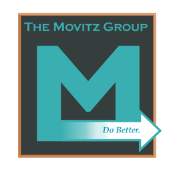|
This morning I attended a webinar hosted by MIT and The Boston Consulting Group that previewed their latest annual sustainability research report. This year's report is titled, Investing For a Sustainable Future, with the key finding that "Investors see a strong link between corporate sustainability performance and financial performance — so they’re using sustainability-related data as a rationale for investment decisions like never before." The research report is well done, and I recommend reading & downloading it here. However with all of its great insight, there's one missing trigger that needs to occur for sustainability to be truly embedded into corporate strategy and embraced throughout an organization, especially at the executive and board level. Among its many findings, the report identifies a sizable gap between companies who consider/desire a sustainability strategy and those which actually have a sustainability strategy. It is not clear how a 'sustainability strategy' is defined, but let's assume we're not talking about "green washing" here where a business can reduce costs through low hanging fruit in its supply chain and market this as being environmentally responsible. Let's assume 'Sustainability' means authentic resource stewardship & management, akin to where the mission of a company is explicit about existing for a greater purpose than simply making products and profits. Even if we were to define 'sustainability' as a shade somewhere in the middle, the trigger still applies because no company can make sufficient progress or get all the way to bright without it. Described to me by our friends at B-Lab, the organization behind the B-Corp certification: Under traditional corporate law, traditional corporations must be managed only to produce value for stockholders. That's stockholders, not stakeholders. Corporate commitment to other interests in order to create sustainable long term value for shareholders is precluded. Profit maximization is the ultimate obligation of corporate directors. They cite two legal cases:
The fundamental change required for corporations to break through on sustainability initiatives is to convert corporate structure to a Benefit Corporation and certified B-Corp by B-Lab. This provides the legal protection for directors to focus on sustainability initiatives along with profits, not only profits. There are more than 1,700 B-Corps today across 130 industries. This is a drop in a bucket, but a start. Some of the more recognized names are Patagonia, Method/Ecover, and Warby Parker. Etsy became a B-Corp in May 2012 and then went public in April 2015, so it can be done. There are even 21 equity investment companies certified as a B-Corp. Let's celebrate and support these companies, and encourage more to do the same. Learn more about the process and requirements to become a B-Corp at bcorporation.net. I absolutely applaud intent and progress of any kind, but the needle doesn't move unless the legal and financial model permits implementation. That permission is being a Benefit Corporation. Comments are closed.
|
About The Author...Michael Movitz has more than 25 years natural/organic products industry experience across retail, manufacturer, broker and market research organizations... Archives
March 2020
Categories
All
|
ServicesSpeed of NatureFollow Us! |
Company |
|
© COPYRIGHT 2017. ALL RIGHTS RESERVED.


 RSS Feed
RSS Feed